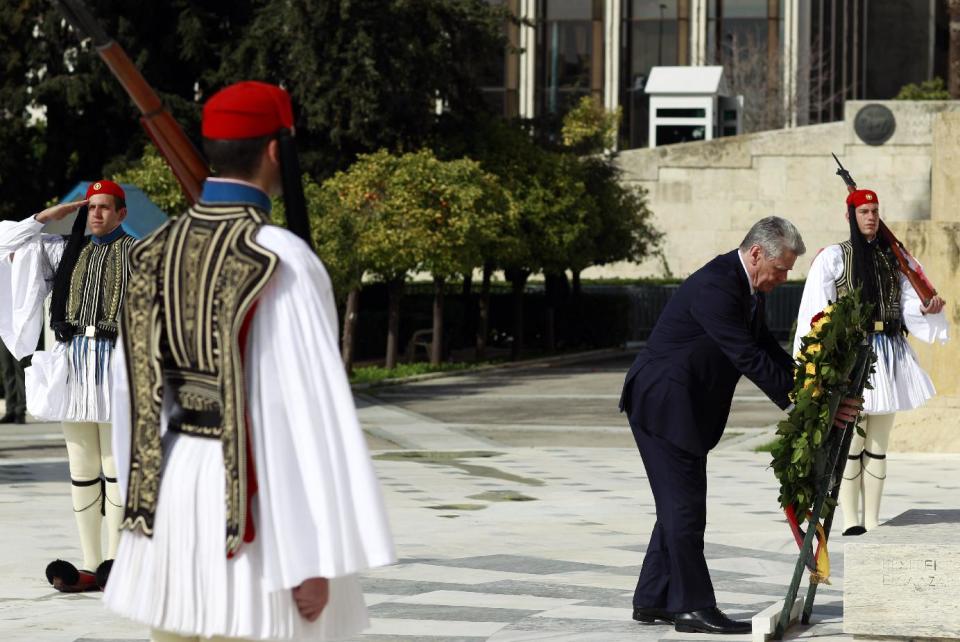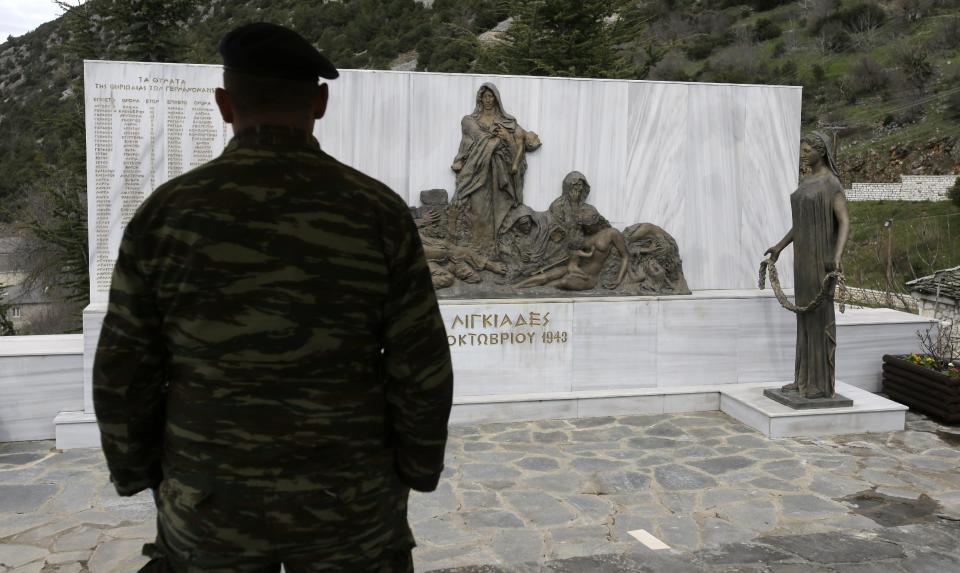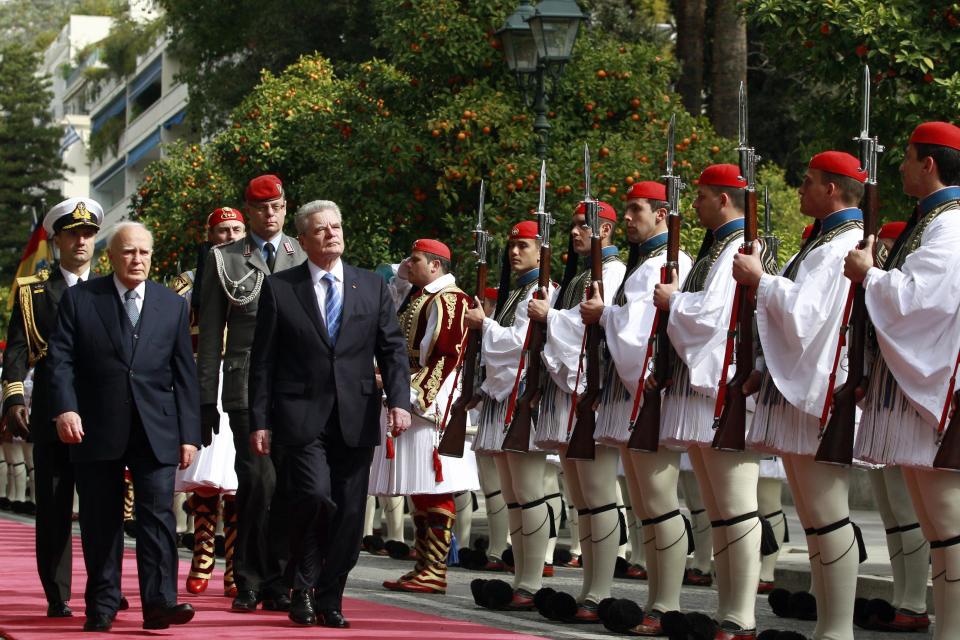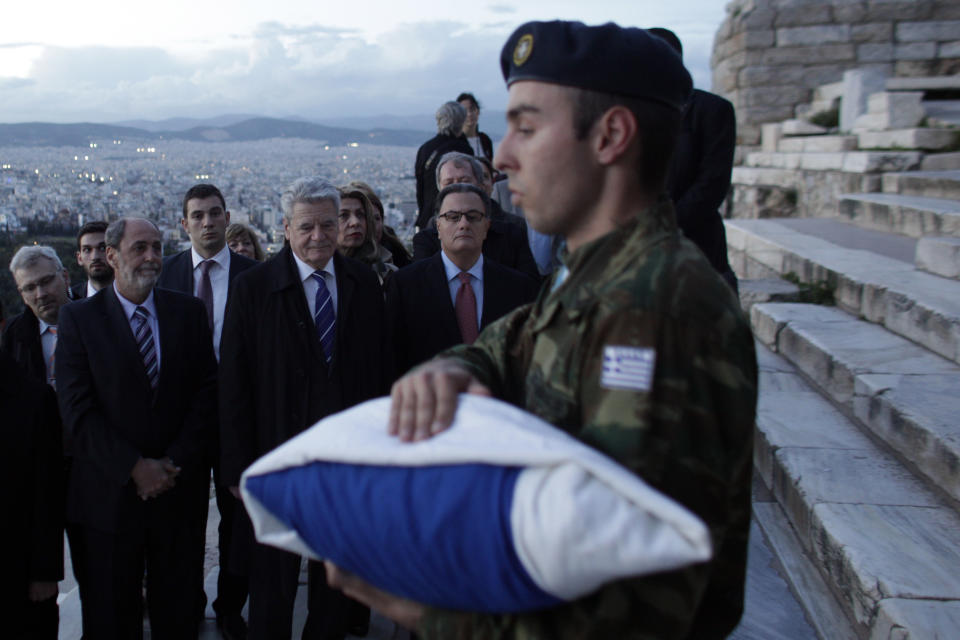Greek president presses Germany's Gauck on WWII
ATHENS, Greece (AP) — Greece's president called for talks as soon as possible with Berlin on long-rejected Greek claims for wartime reparations, during a meeting in Athens Thursday with his German counterpart.
Karolos Papoulias insisted at a joint news conference that Greece has never dropped its claims to reparations for the brutal 1941-44 German occupation during World War II, and restitution of a forced wartime loan to Germany.
Although an official assessment of what sum Greece could demand is pending, pro-reparations activists quote the sum of 162 billion euros ($223 billion) — about half the financially-distressed country's national debt.
"It is very hard for me to understand the German government's refusal to discuss the issue of the loan and the reparations," Papoulias said at an official dinner, according to a speech released by his office, saying the matter "casts a pall" over the two countries' relations.
But German President Joachim Gauck stuck to Berlin's longstanding argument that the matter has been settled.
"You know that I cannot adopt a different position — for example that legal means have not been exhausted — from the legal position of the German government," Gauck said.
The comments by Papoulias, whose position is ceremonial, follow growing pressure from opposition parties and groups representing war victims, amid the country's acute recession. The government has been reluctant to aggressively pursue the matter, saying it will take concrete action when it sees fit.
Gauck arrived in Athens on Wednesday for a three-day visit that combines talking to Greek politicians with efforts to bring closure to WWII wounds as anti-German sentiment runs high in austerity-weary Greece.
Greek police banned all demonstrations in central Athens for most of the day, although the only signs of anger directed at Gauck were by irate motorists kept waiting for his motorcade to pass.
Germany is the largest single contributor to Greece's bailout, and one of the strongest proponents of the austerity agenda. Berlin's stance has often been criticized in Greece as overly harsh, and has led to increasing resentment.
On Friday, Gauck will visit the northwestern village of Ligiades, where German troops massacred dozens of villagers in 1943, in reprisal for a partisan attack. He will be accompanied by Papoulias, a wartime resistance fighter in his teens, who comes from the nearby town of Ioannina.

 Yahoo News
Yahoo News 






